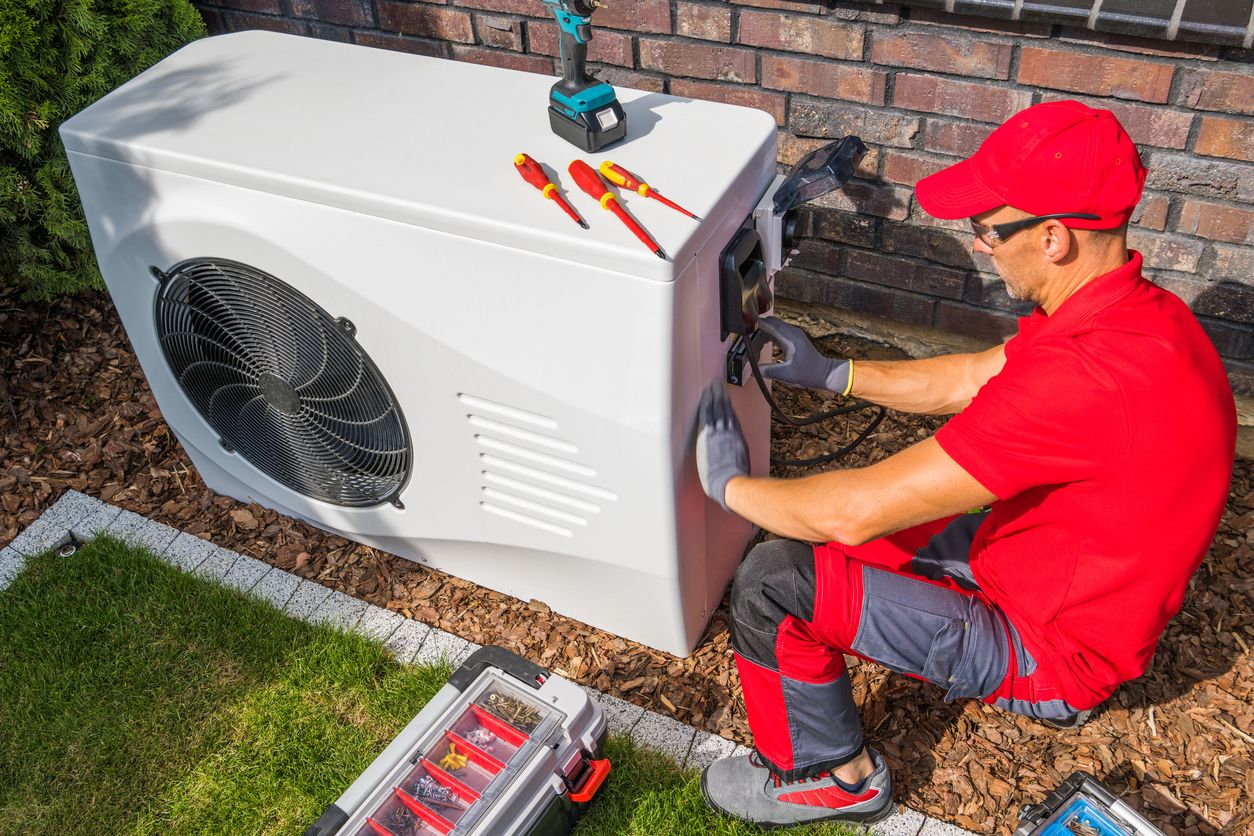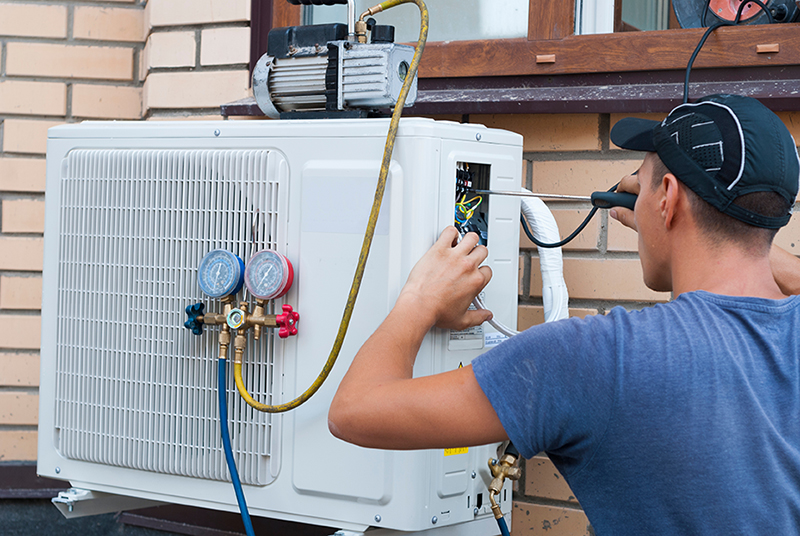Professional Furnace Repair Experts For Commercial Heating And Cooling Needs
Professional Furnace Repair Experts For Commercial Heating And Cooling Needs
Blog Article
Your Guide to Choosing the Right HVAC System for Your Needs
Choosing a proper cooling and heating system is a crucial decision that can considerably affect convenience and power effectiveness in your house. Different aspects need to be considered, consisting of the dimension of your home, regional environment conditions, and certain heating or cooling requirements. In addition, comprehending the various sorts of systems offered and their energy ratings can help guide your choice. By evaluating these components meticulously, you can stay clear of common challenges. What vital factors to consider should you prioritize to ensure your investment fulfills both prompt and long-lasting needs?
Understanding Cooling And Heating System Kind
When selecting a cooling and heating system, it is important to comprehend the numerous types available to fulfill your particular demands. The main groups of a/c systems include main air conditioning systems, ductless mini-split systems, heatpump, and heater systems.
Central air systems are made to cool numerous rooms making use of ductwork to distribute conditioned air. They are suitable for larger homes needing consistent temperature control. Ductless mini-split systems, on the various other hand, offer adaptability and efficiency, as they permit zoning capabilities, allowing specific room temperature law without the need for ductwork.
Warmth pumps operate by transferring heat rather than generating it, making them an energy-efficient alternative for both heating and cooling. Conversely, heater systems make use of combustion to create heat, using either power, gas, or oil.
Each system has distinctive advantages and factors to consider, consisting of installation demands, upkeep, and overall expenses. Comprehending these kinds will help house owners make notified decisions based on their particular needs, climate, and spending plan restraints, inevitably making sure ideal comfort and efficiency.
Evaluating Power Performance
Power effectiveness is a crucial factor in the option of a cooling and heating system, as it straight impacts both energy expenses and environmental sustainability. When evaluating power efficiency, numerous metrics and scores can help guide your choice. The Seasonal Energy Performance Ratio (SEER) and the Heating Seasonal Efficiency Element (HSPF) are essential signs for air conditioning systems, representing their performance over a common air conditioning and home heating period, specifically. Higher SEER and HSPF scores indicate much better energy efficiency, leading to lowered energy intake.
Additionally, search for systems that have actually earned the ENERGY celebrity tag. This certification symbolizes that the tools meets stringent power performance guidelines set by the united state Epa. Think about the system's variable-speed modern technology, which permits a lot more reliable procedure by adjusting the output to match demand, additionally boosting power savings.
Furthermore, appropriate insulation and air duct securing can dramatically affect the system's total efficiency. In recap, selecting an energy-efficient cooling and heating system not just decreases your power bills however also adds to a more sustainable environment, making it a vital consideration in your investing in process.
Assessing System Size
Selecting the suitable size for a heating and cooling system is vital to making certain optimum efficiency and performance. A small system might have a hard time to preserve preferred temperatures, resulting in increased wear and tear, greater power usage, and reduced comfort. Conversely, an oversized system can lead to quick biking, which not just triggers inefficiencies but additionally influences humidity control and air quality.
To examine the suitable sizing, it is necessary to carry out a load estimation, which takes into consideration aspects such as the square footage of the room, insulation degrees, window dimensions, and regional climate problems - furnace installation. This calculation aids figure out the British Thermal Units (BTU) needed for heating and air conditioning. Furthermore, it is important to make up certain needs, such as the variety of residents and the visibility of heat-generating home appliances

Installment Prices and Spending Plan
A comprehensive understanding of installation costs is important for property owners and companies thinking about a new heating and cooling system. The overall expense of installation can vary extensively based upon a number of aspects, including the type of system, the complexity of installment, and the area of the building. Typically, setup expenses can range from $3,000 to $10,000, depending on the system's dimension and effectiveness.
When budgeting for a heating and cooling system, it is essential to consider not just the preliminary setup costs yet likewise any added expenditures important site that may arise, such as ductwork alterations, electrical upgrades, or permits. In addition, it is a good idea to obtain numerous quotes from accredited heating and cooling contractors to make sure competitive rates.
House owners should additionally factor in the possible long-term cost savings connected with energy-efficient systems. While the ahead of time expenses might be higher, energy-efficient versions can result in considerable financial savings on utility costs in time.

Upkeep and Long Life Factors To Consider

Proper maintenance consists of regular inspections, filter replacements, and cleaning of coils and air ducts (furnace repair). Ignoring these jobs can bring about decreased efficiency, enhanced power prices, and early system failing. Homeowners should also think about the accessibility click over here of solution agreements, which usually provide scheduled maintenance and priority service, ensuring that the system remains in peak condition
Longevity varies by system type; as an example, well-maintained central air units can last 15 to 20 years, while heat pumps may have a lifespan of 10 to 15 years. Selecting a system with a strong reputation for reliability, in addition to buying normal upkeep, can substantially improve the system's toughness. Furthermore, selecting higher-efficiency designs may lead to lasting financial savings on power bills, balancing the first financial investment gradually.
Final Thought
In verdict, choosing an ideal Heating and cooling system demands careful consideration of numerous elements, consisting of system kinds, energy effectiveness, and dimension. Ultimately, a knowledgeable choice will improve convenience and efficiency in domestic settings while making the most of energy financial savings.
Selecting a suitable A/c system is a critical decision that can substantially influence convenience and energy efficiency in your home.Energy effectiveness is an essential factor in the selection of an A/c system, as it straight influences both energy prices and environmental sustainability. The Seasonal Energy Efficiency Ratio (SEER) and the Heating Seasonal Performance Element (HSPF) are crucial indications for air conditioning systems, representing their performance over a regular air conditioning and home heating period, specifically. Picking a system with a solid online reputation for integrity, along with spending in normal upkeep, can dramatically enhance the system's sturdiness.In final thought, choosing a suitable Heating and cooling system requires cautious consideration of various factors, consisting of system kinds, energy efficiency, and dimension.
Report this page